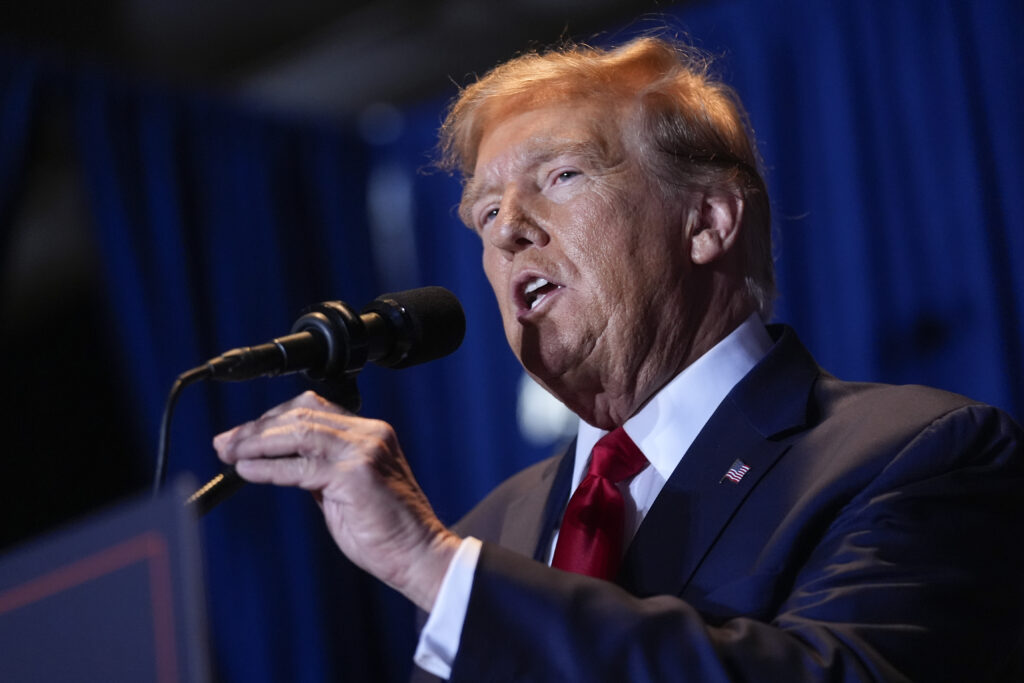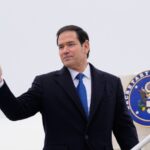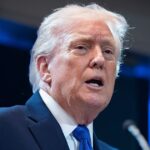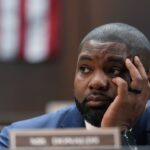
Former President Donald Trump was handed a gift this week with the delay in his 2020 election subversion case after the Supreme Court agreed to hear his argument that he is immune from prosecution, raising the possibility of delay in his other federal criminal case.
Trump’s lawyers have argued he should be shielded from prosecution for his efforts to reverse President Joe Biden‘s election victory because he was president when he took those actions, an assertion that has not survived lower court scrutiny. The former president has made delaying his two federal criminal cases until after the 2024 election a cornerstone of his legal strategy, as he would have the power to dismiss those charges if reelected.

The Supreme Court’s decision on Wednesday not to schedule its arguments on the matter until the week of April 22 drastically reduces the chances that a trial on election subversion charges brought by special counsel Jack Smith can be completed by the Nov. 5 Election Day, as Trump is poised to be the Republican nominee to take on Biden in a 2024 rematch.
Legal experts told the Washington Examiner that the decision to take up the immunity dispute could also bleed into another federal criminal case: Trump’s alleged efforts to obstruct and impede an investigation into his handling of classified documents after leaving office, a case that the former president also says he should be immune from.
While it’s unclear when the justices will decide on presidential immunity, experts say the earliest they could rule on it is sometime in May or up to the end of June, when the high court term concludes.
“Let’s say June 25, the Supreme Court decides that presidents have absolute immunity. That will probably simply knock out the documents case,” George Washington University law professor Paul Schiff Berman, a former clerk to the late Justice Ruth Bader Ginsburg, told the Washington Examiner.
“What I’m saying is that before that, like between now and June 25, I could imagine [the judge] or the 11th Circuit saying, well, given that Trump has claimed immunity in our lawsuit also and the Supreme Court is planning to hear that issue, we’re going to voluntarily freeze our proceedings while we wait for the Supreme Court to decide,” Berman said.
U.S. District Judge Aileen Cannon, an appointee of Trump, is preparing to weigh in on several of Trump’s motions to dismiss the 40-count classified documents case, including an argument Trump raised in the 2020 election subversion case in federal court in Washington, D.C.
In December, U.S. District Judge Tanya Chutkan, an appointee of former President Barack Obama, ruled against Trump’s immunity claims and teed off the lengthy appeals process that is currently before the high court. Once Trump appealed to the U.S. Court of Appeals for the District of Columbia Circuit, that stripped the case from Chutkan’s jurisdiction, forcing her to remove the proposed spring start date for that trial until the Supreme Court rules whether Trump has immunity.
Smith on Thursday told Cannon in court filings that he would like the classified documents trial to begin no later than July 8, while Trump maintains that question should remain unanswered until the Supreme Court’s decision over immunity in the Washington, D.C., case, Trump v. United States.
Trump attorneys wrote in their proposal that he shouldn’t face a trial in the classified documents case until after the election but conceded he would be willing for a trial to commence on Aug. 12 if necessary, which would be less than three months before the 2024 election.
Berman pointed to the possibility that the ultimate decision over presidential immunity could ratchet up a “second appeal” that Trump could use to delay his 2020 election subversion trial further, as well as, potentially, the classified documents case.
If the high court did find there is presidential immunity for “official acts,” then it “seems like they would have to also address the question of whether this counts as an official act, unless they’re going to send it back down to the lower court to determine whether this was an official act. And then that could be a second appeal,” Berman said, referring to Smith’s assertion that Trump sought to subvert the 2020 election.
Another core issue at play in the immunity dispute is the Supreme Court’s narrowing of the scope of the question for their consideration: “Whether and if so to what extent does a former President enjoy presidential immunity from criminal prosecution for conduct alleged to involve official acts during his tenure in office.”
Legal experts have speculated that justices likely engaged in lengthy negotiations for the past two weeks on how to frame the legal question of the issue before them, as the language does not exactly follow how either Trump or Smith framed the issue.
George Washington University law professor Alan Morrison told the Washington Examiner he expects the high court to delay releasing its opinion on presidential immunity until at least June, in part because of the way the legal question is phrased.
“It looks like the court will be focusing on specific aspects of the indictment to see if Trump has immunity for them, rather than an all-or-nothing approach that Trump and the court of appeals used,” Morrison said.
While Berman and Morrison are skeptical that Trump will succeed in dismissing his two federal cases on presidential immunity claims, both contend that the Supreme Court’s involvement in the case throws his criminal trial time frames in doubt.
CLICK HERE TO READ MORE FROM THE WASHINGTON EXAMINER
Trump is facing four criminal indictments in total, including a state-level case in New York over an alleged hush money payment made to a porn star and another one in Georgia for allegedly conspiring with a group of allies to overturn the state’s election results. While he cannot dismiss those charges if reelected, he likely won’t face jail time if convicted in New York, and the Georgia case could take months to head to trial, likely even after the 2024 election.
Trump has pleaded not guilty to all 91 charges he faces and has alleged the indictments are a “witch hunt” concocted by his political enemies in coordination with Biden.





